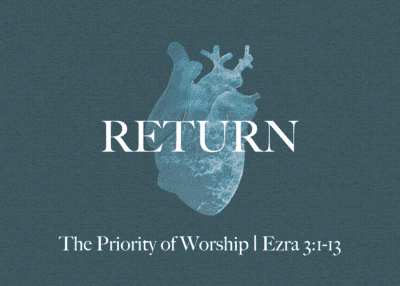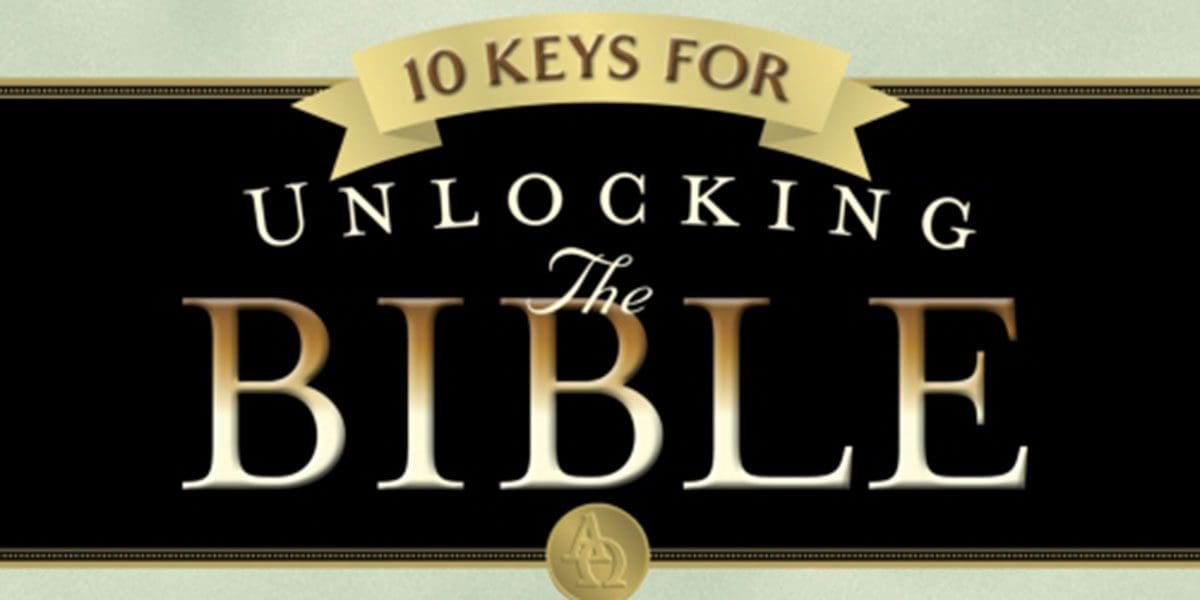“You must act according to the decisions they give you at the place the LORD will choose. Be careful to do everything they direct you to do. Act according to the law they teach you and the decisions they give you. Do not turn aside from what they tell you, to the right or to the left.” Deuteronomy 17:10-11
The structure of the book of Deuteronomy follows the pattern of the 10 Commandments. The year of cancelling debts (Deuteronomy 15) is an application of the fourth commandment about keeping the Sabbath. The festivals (Deuteronomy 16) are applications of the Sabbath principle throughout the year.
Today, we move to a new section of the book where Moses deals with the subject of leadership. It seems right to view this as an application of the fifth commandment, “Honor your father and your mother.” Your father and your mother are the first figures of authority in your life, and God says that you are to honor them.
Moses takes the principle of the fifth commandment and applies this to the broader life of God’s people, laying out the offices of leadership. He tells us what is required of a godly leader, and he calls the people to hold these leaders in honor.
It was originally my intention to focus on one aspect of leadership—the King, but I have come to feel that what is most useful for us is to take in a broader sweep of the wisdom of God related to leadership. I want to draw out four observations about leadership, and identify three temptations that leaders face and one priority for leaders to pursue. And finally, I want us to see how all of this speaks about Jesus Christ.
Four Observations about Godly Leadership
1. God gives leaders to His people
There are four offices: The Judge, the King, the Priest and the Prophet.
i. The Judge
“Appoint judges and officials for each of your tribes in every town the LORD your God is giving you, and they shall judge the people fairly. (16:18)
As I have reflected on this, I’m struck by the relevance of God’s Word for us today. What happens every time a name comes up for the Supreme Court? We go through a long process of questions: Does this person lean to the left or to the right? Does this person have political partiality?
Here we are in the mid-term elections, with staggering amounts of money that are being spent on these campaigns, and it is reasonable to ask, “Where is this money coming from?” and “What commitments are being made in return for this money?”
“Do not pervert justice or show partiality. Do not accept a bribe, for a bribe blinds the eyes of the wise and twists the words of the righteous.” (18:19)
God is speaking about the corrupting power of money. When money is given to secure an outcome that is a bribe. And when a bribe is given, even wise people lose the ability to see clearly. Money clouds their vision. Even righteous people end up twisting their words. When God speaks about judges, this is for us.
ii. The King
“The king… must not acquire great numbers of horses for himself.” (17:16)
The horse, in these days, was the means of exercising military might. If you were planning military aggression, the first thing you would do is acquire great numbers of horses. Do we have in the world today, nations that are building military power, threatening the stability of the world? Yes. When God speaks about kings, this is for us.
iii. The Priest
“The Lord your God has chosen them… to stand and minister in the Lord’s name always.” (18:5)
Do we have any problems in the world today regarding abusive priests?
Men who were given a position of trust, men called to minister in the Lord’s name, who abused that trust and brought great pain to vulnerable people? When God speaks about priests, this is for us.
iv. The Prophet
“I will put my words in his mouth.” (18:18)
That is the prophet. He speaks the words of God. But Moses continued: “A prophet who presumes to speak in my name anything that I have not commanded him to say… must be put to death” (18:20).
Do we have any problems today with people who are given the trust of a pulpit, and who use it, not to speak the Word of God, but to communicate their own message? Yes. It is all around us. When God speaks about prophets, this is for us.
We live in a world of trouble caused by the biased judge, the abusive priest, the false prophet and the tyrannical king. We live in a sinful, fallen world. The failings we see in our leaders are merely a reflection of what resides in ourselves. We need these words from God in every culture and in every generation!
Here are God’s people, they are coming into the Promised Land, and they’re surrounded by nations with biased judges, abusive priests, false prophets, tyrannical kings and people who despised them.
But God says to his people, “Among you it is to be different. You are my people and I am calling you to something different from the pattern that you see in the world.”
2. God distributes authority so that it never resides in one person alone
Why are these four leadership positions distinguished? Because authority comes from God himself; all authority resides in him. And since we live in a fallen world where even the best leaders are sinners in the process of being redeemed, whenever God gives authority to men, He spreads it out.
No one person could hold all these offices. The priest could not be a king. The prophet could not act as the judge. Chris Wright says:
“The clear distinction and separation of the different kinds of authority can be seen as a significant precursor to some of the principles of democratic government, especially the separation of powers. No single person could hold all four offices. None of the authorities is given supreme authority over the others.” [i]
You might wonder how this works out in the church. What does this look like among the people of God? When there are cases of discipline in the church, they come to the elders. The elders are called to act as judges.
We have a church board, which is called to act in a kingly role. The pastors have a prophetic role. They are to speak the word of God publicly and privately into the lives of God’s people. Then who are the priests? All of God’s people are priests who stand and minister in the Lord’s name.
God distributes authority so that it never resides in one person. This principle is wisely applied in the way that this church is governed, and if you are a discerning person, you will be thankful for it.
3. Leaders are to be qualified in character and by ability
“Be sure to appoint over you the king the Lord your God chooses.” (17:15)
Moses gives us seven marks of a godly king, and all of them are reflected in the New Testament qualifications for deacons and elders. The Bible is one book, and I want you to see the unity and flow of it:
i. The king must be anointed by God (17:15)
“Choose men who are full of the Holy Spirit.” Acts 6:3
ii. The king must be from among God’s people, not a foreigner (17:15)
“Choose seven men from among you.” Acts 6:3
iii. The king must exercise faith, not put his trust in horses (17:16)
“They chose Stephen, a man full of faith and of the Holy Spirit.” Acts 6:5
iv. The king must be loyal, not having many wives (17:17)
“The elder must be the husband of but one wife.” 1 Timothy 3:2
v. The king must not be greedy, accumulating silver and gold (17:17)
“The elder must not be a lover of money.” 1 Timothy 3:3
vi. The king must be a student of Scripture, reading the law (17:19)
“The deacon is to hold the deep truths of the faith with a clear conscience.” 1 Timothy 3:9
vii. The king is not to consider himself better than his brothers (17:20)
“Elders are to serve ‘not lording it over those entrusted to you but being examples to the flock.’” 1 Peter 5:3
Do you see the wonderful unity of this? God is looking for a particular character in those who are given responsibility for His church, in every generation and in every place.
4. God’s people are to hold their leaders in honor
“The man who shows contempt for the judge or for the priest who stands ministering there to the LORD your God must be put to death. You must purge the evil from Israel.” Deuteronomy 17:12
If a person shows contempt for leaders in the church, we don’t put them to death. But there may be times when it is necessary to put them out of the church. The Scripture says: “Warn a divisive person once, and then warn him a second time. After that, have nothing to do with him” (Titus 3:10).
God’s people are to appoint leaders who are worthy of honor, and they are to give these leaders the honor they are due, “Now we ask you, brothers, to respect those who work hard among you, who are over you in the Lord and who admonish you. Hold them in the highest regard in love because of their work. Live in peace with each other” (1 Thessalonians 5:12-13).
Three Temptations All Leaders Face
If God has given you a position of authority and responsibility, you must be particularly aware of these temptations. As soon as I tell you what they are, you will not be surprised.
These temptations cross into every generation and every geographical border. Every leader will face particular temptations that come from three directions: money, sex and power. These are temptations all leaders face.
1. Power
“The king must not acquire great numbers of horses for himself.” (17:16)
Most leaders would like to have more power. But God says to the king, be very careful about that. All kings have horses, but do not acquire great numbers of horses for yourselves. Don’t try to become a power. It will be a temptation for you.
2. Sex
“He must not take many wives, or his heart will be led astray.” (17:17)
It was common in those days for a king to have, not simply a wife, but a harem. Wives from different royal families were often a means of sealing political alliances. Inevitably, with the many wives came the worship of many gods into the royal court. This is what happened to Solomon.
A man with one wife has the gift of someone next to him who can tell him the truth. Isn’t that a good thing? Do you think that a man with a harem ever hears the truth? A king with a harem is surrounded by the sweet fog of flattery and lies. And in a culture saturated with pornography, Christian men are surrounded by many women. God says, “This leads the heart astray.” Beware of the lure of this temptation.
3. Money
“He must not accumulate large amounts of silver and gold.” (17:17)
Being the king would give a man the opportunity to gather vast personal wealth. God says, “As you are given this authority, you are not to do this.” Don’t use your position of trust for personal gain.
Isn’t it striking that human nature never changes? The temptations that God’s people faced more than 3,000 years ago, and half a world away, are exactly the same as the temptations we face today. How is the king to face these temptations and to overcome them?
One Priority For Leaders to Pursue: Saturate Your Life in the Word of God
Write the Word
“When he takes the throne of his kingdom, he is to write for himself on a scroll a copy of this law.” (17:18)
Nobody else in Israel was required to write out the book of Deuteronomy by hand. But the king is given such great trust and responsibility that when the king is crowned, his first task is not to rule. His first task is to learn how to rule, and he learns this from writing out the law of God.
It’s almost as if the people are saying to their king, “We need this Word to be in you. You will be making big decisions. What you decide will affect all of us.” So, they place the crown on his head and send him off to the study to write out his own copy of Deuteronomy.
How long do you think this would take? It took our congregation just over two and one half hours to read it in one sitting. I’ve never written it out myself—I’m not a king—but I believe it took a week.
Read the Word
“It is to be with him, and he is to read it all the days of his life so that he may learn to revere the LORD his God and follow carefully all the words of this law and these decrees.” (17:19)
It is to be with him: This handwritten copy of God’s Word is to be on the king’s nightstand and in his study. He is to take it with him to meetings. Can you picture this? His assistant walking behind him, carrying his copy of the Bible, because he’ll want to refer to it.
Have the Bible on your nightstand. Put a Bible on the desk. Bring your Bible to the church. Take your Bible on the train. Have a Bible when you are in meetings. This book is always to be with you.
He is to read it all the days of his life: As you read the Bible, it will shape your thinking. It will form your character. It will energize your life.
Read the Bible with faith and with repentance, and keep reading it “all the days of your life.” Fill your heart with God’s promises. Shape your will with God’s commands. Guard your heart with God’s words. Then you will be able to deal with the temptations of power and sex and money.
King David had many failings in his life. He tells us how he learned to stand against temptation, “I have hidden your word in my heart that I might not sin against you.” (Psalm 119:11). Do you see what he’s saying? “This is my defense. This is how I’m able to stand against temptation.”
Spurgeon made a comment about John Bunyan, Bunyan studied the Bible “till his whole being was saturated with Scripture.” Then Spurgeon says, as you read Bunyan you want to say:
“This man is a living Bible! Prick him anywhere and you will find that his blood is bibline, the very essence of the Bible flows from him. He cannot speak without quoting a text for his soul is full of the word of God.” [ii]
That’s the kind of leader we want, isn’t it? That is the kind of pastor that I want to be. If you’re headed for the ministry, aim for this. Aim to be that kind of pastor. Aim to be that of elder. Aim to be that kind of father in your own home. Seek to be that kind of Christian.
Obey the Word
“It is to be with him, and he is to read it all the days of his life so that he may learn to revere the LORD his God and follow carefully all the words of this law and these decrees.” Deuteronomy 19:19
The king will have his own philosophy. He will have his own vision and values, as every leader does. But he must allow the Word of God to rebuke him and correct him. The Word of God will always be shaping his thinking and challenging his ideas.
This is why one of the great cries of the reformation was “Semper Reformanda” or “Always Reforming!” The reformers did not say, “We have justification by faith all worked out. We know it all.” Luther said, “My mind is captive to the Word of God.”
The true Christian leader is always being challenged by this Word, always humbled by it, always learning from it. We are not to pose as people who have got it all right, but as people who are always humbly seeking to follow the Word of God.
Who is this King?
Who is this king who bears all these marks, and overcomes all these temptations, and follows all these laws?
As you read through the Old Testament, with a few exceptions, the Old Testament kings were a sorry lot. Instead of each king writing out his own copy by hand, the book of Deuteronomy was for many years left gathering dust—until the time of Josiah, when it was found in the temple vault.
Even the greatest king, David, failed in his calling and found himself hanging on the mercy of God. This is the position every true Christian leader is always in.
In the fullness of time, God sent his Son, and because he is God with us, he carries all authority in himself. God’s anointing is on him. He is bone of our bone and flesh of our flesh, and so he truly is a king from among God’s people.
He is saturated with the Word of God. Even as a young boy in the temple, his mind is filled with Scripture. How many times does he quote from the Old Testament, and from the book of Deuteronomy? And he goes out into the desert and overcomes temptation.
In his humility, he does not come riding into Jerusalem on a great horse, he comes into Jerusalem riding on a donkey. And this King, because he is God, is also the priest who, on the cross, makes himself to be the sacrifice for our sins to reconcile us to God. And because he is God with us, he rises from the dead, because death cannot keep a hold on him.
When he comes to his disciples, do you remember what he says? “All authority in heaven and on earth has been given to me.” Not just some of it, all authority! “All authority in heaven and on earth.” In other words, He is the prophet, the priest, the king and the judge. “Therefore go and make disciples of all nations, baptizing them in the name of the Father and of the Son and of the Holy Spirit” (Matthew 28:18-19).
We are to call people from every nation to become followers of Christ. Why? Because all authority belongs to him. He is the king of kings and the Lord of Lords.
When You Know Who Jesus is, You will See What it Means to Follow Him
Believe Christ’s Word
Christ is the true prophet, so following Him means believing His Word.
You give up the right to say, “Christ says this, but I think that.” To be a Christian means that the words of Jesus define truth for you, and when you think differently from His Word, you are wrong and change your mind. That’s what it means to place yourself under the authority of His Word.
Trust Christ’s Sacrifice
Christ is the true priest, who came to offer himself as a sacrifice for our sins. To be a Christian means that you trust in the sacrifice of Jesus Christ, who gave Himself to make atonement for your sins.
Accept Christ’s Judgment
Christ is the judge of all people. To be a Christian means that you accept Christ’s judgment. We must all stand before the judgment seat of Christ.
What does it mean to accept Christ’s judgment? “Since we have been justified through faith, we have peace with God through our Lord Jesus Christ” (Romans 5:1). What is His judgment about you? Through faith, you have peace with God.
“Therefore there is now no condemnation for those who are in Christ Jesus” (Romans 8:1). If the blood of Christ is good enough to forgive you, is it not good enough for you to forgive yourself?
Obey Christ’s Command
Christ is the King, and he says to us, His redeemed people, “If you love me, you will obey what I command” (John 14:15).
[i] Christopher Wright, “Deuteronomy,” p. 203, Hendrickson, 1996
https://www.amazon.com/Deuteronomy-Christopher-J-H-Wright/dp/1565631714/
[ii] C H Spurgeon, “Autobiography,” Vol. 2, p.159, Banner of Truth, 1973
https://www.amazon.com/C-H-Spurgeon-Autobiography-1860-1892/dp/0851511821/






